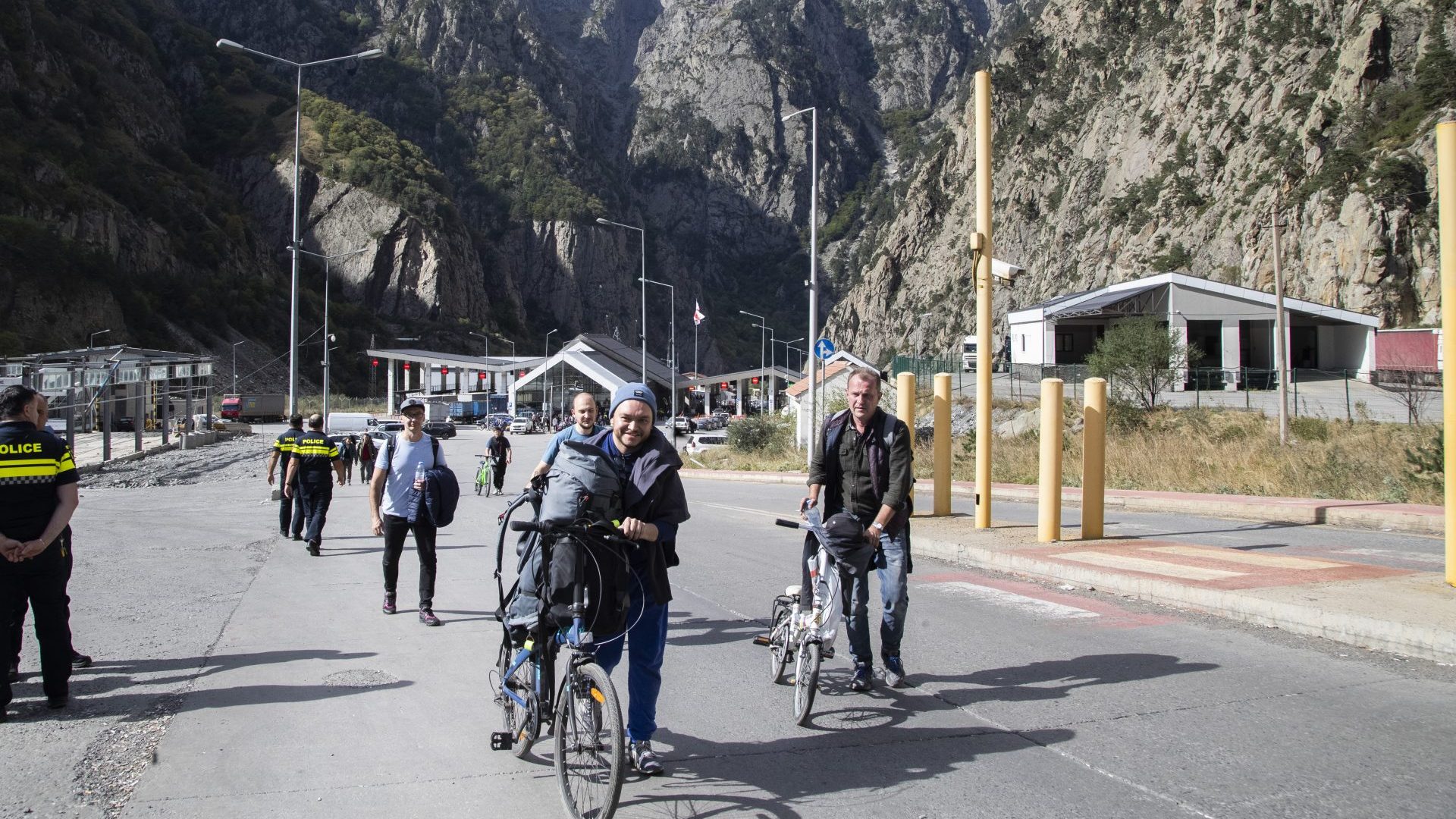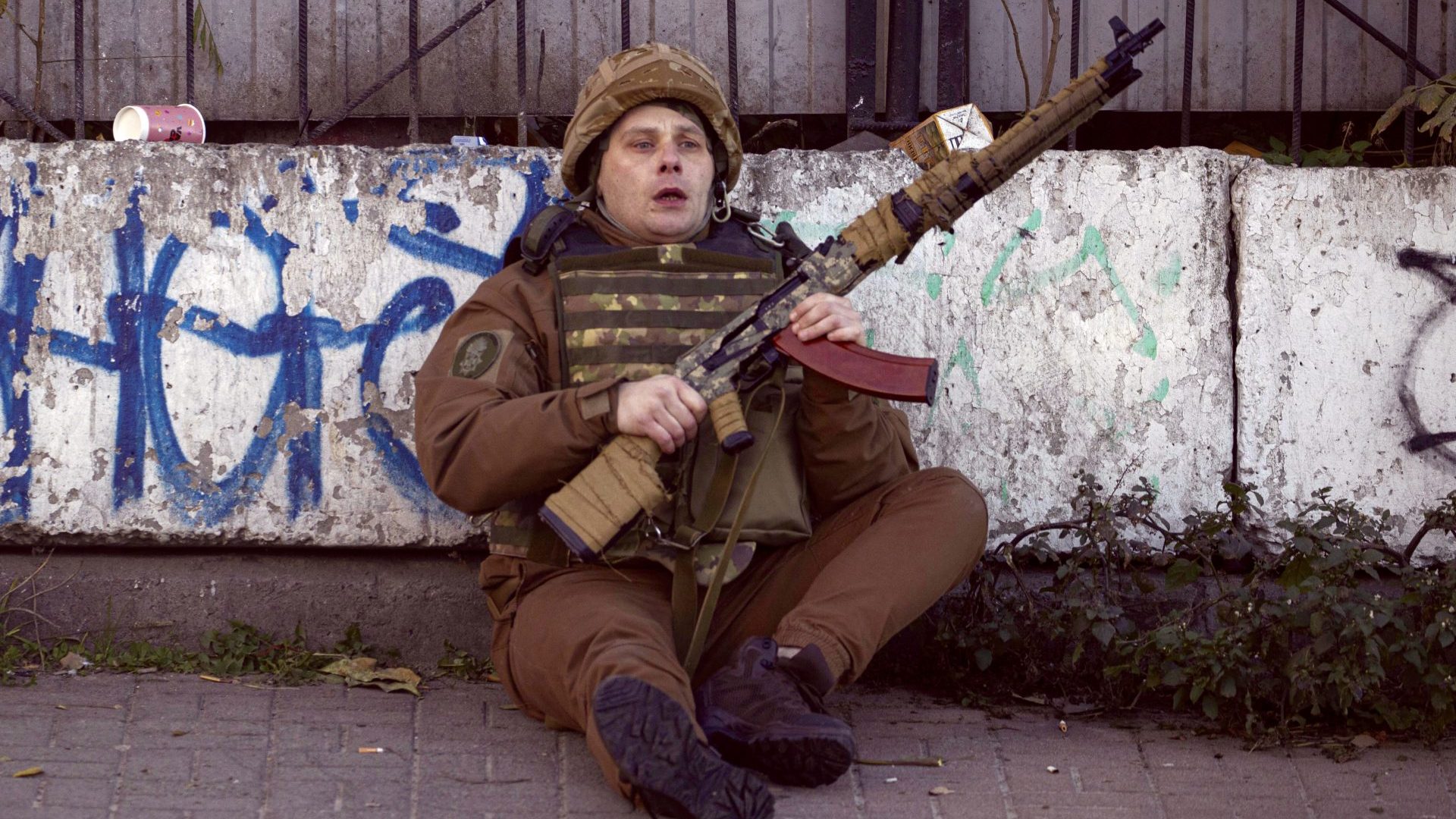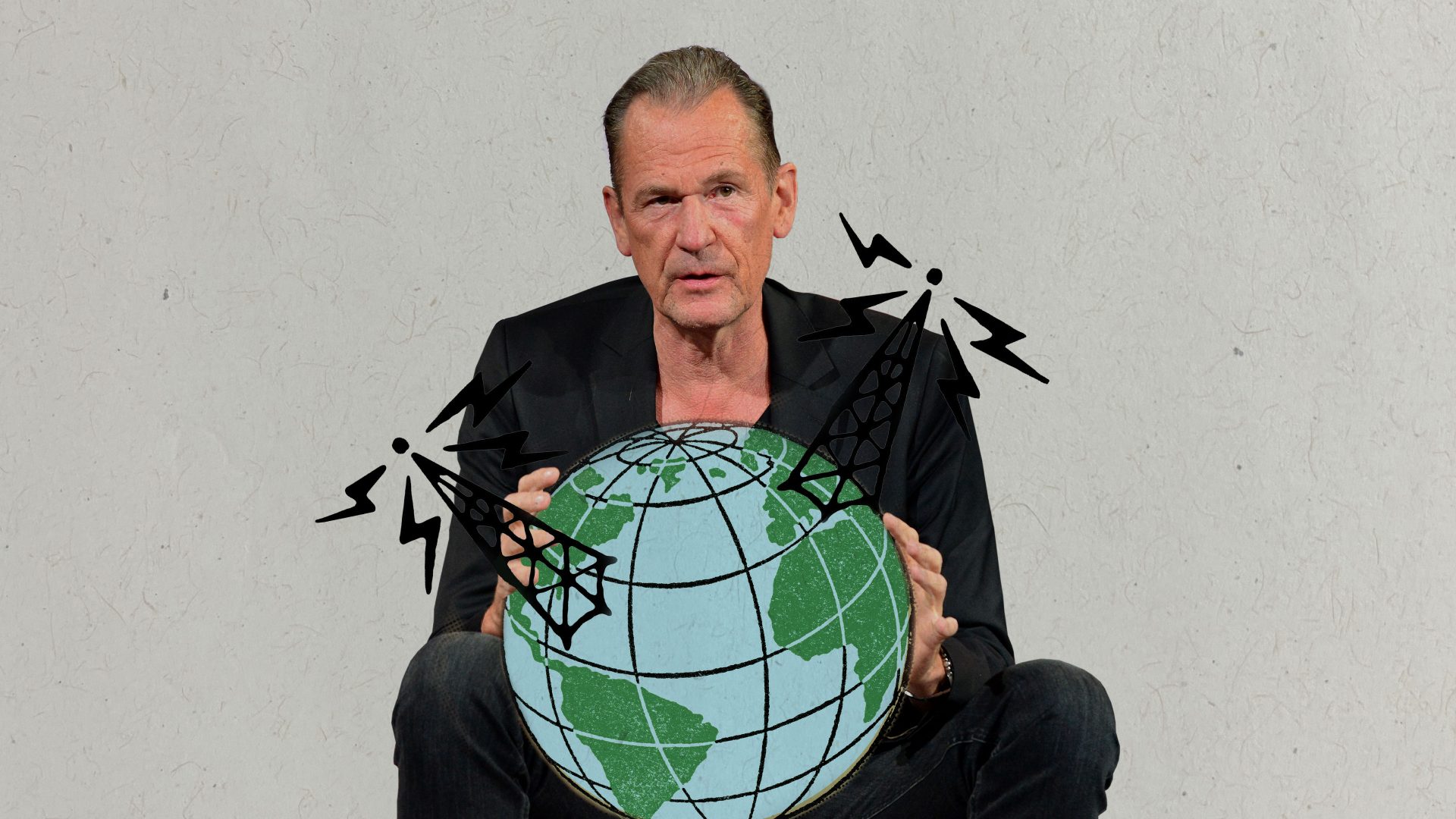The roads that run between the giant mountains of northern Georgia are jammed with traffic. I drive along the old highway, past the mountain village of Stepantsminda, and I’ve never seen it so busy. I head further into the high Caucasus and up near the Jvari Pass to the famous ski resort of Gudauri, where I used to go on holiday. More cars. The next stop after Gudauri is Larsi, the border checkpoint with Russia, and the source of all this southbound traffic. After Vladimir Putin ordered a partial military mobilisation on September 21, Russians have been flooding south across the Georgian border to escape the call-up. Larsi has suddenly changed from a sleepy border post into a wartime escape route.
On the way up to Larsi, I start counting the cars. In five minutes I see 50 with Russian numberplates go past, all of them full of passengers. There are modern, expensive-looking Jaguars and old, Soviet-era Ladas. Some are packed full of people and luggage, while in others there are only men. Getting closer to the border, the restaurants now have Russian language signs on them, offering local specialities such as Khinkali, Khachapuri, kabab, and of course Georgian wine. A local real estate agency offers advice to Russians looking to rent or buy a new home. It seems they are planning to stay.
At the border, most of the men don’t want to speak to me or to anyone else. Those who do talk ask me to change their names. One of them says there is a huge queue on the other side of the checkpoint. You can’t see the queue from the Georgian side. He tells me the process of getting across is painfully slow.
A 37-year-old Russian man wearing a blue tracksuit and carrying a red backpack has just crossed the border and is waiting for his friends. “We came by bus, and I decided to go through the border earlier. I’m waiting for them here,” he tells me, sipping hot coffee. “We decided to come because there is a friend’s wedding here.” He doesn’t want to tell me his name. Young men are being press-ganged off the streets of Moscow and other Russian cities, and I’m surprised to hear the border police allowed a young, fit-looking man like him out of the country simply to attend a wedding.
As I’m wondering how he has managed to fit a wedding suit into his backpack, another man arrives from the border checkpoint. Misha is a 39-year-old IT manager, and he is waiting for his wife and five-year-old daughter, who are crossing after him. “This is because of mobilisation,” he says. “I don’t want to go and die for nothing. Also we decided to move to the south. The weather is perfect here,” Misha says, eating a bag of crisps.
“South?” I say. “South of what? Do you mean Georgia?”
“Yes, yes,” he replies and smiles. I ask him about the war. What do you think of it? “War is a bad thing, but we should not interfere in politics,” he says. “These are two monsters fighting and we should not be engaged in it in any form.”
When I hear this, I have the same reaction as many other Georgians. It makes me think immediately of the 2008 war that Georgia had to fight against Russia and of the Russian occupation that continues to this day. Russians may like to avoid thinking about the politics of war, but for Georgians it’s not so easy.
Russian troops are still stationed in two of Georgia’s northern regions – Abkhazia and Tskhinvali, which they call “South Ossetia”. It is impossible to remain neutral about the terrible oppression and insecurity that our region has endured for decades on account of Russia. And then I look at Misha happily eating his bag of crisps and realise that many of the Russians crossing the border into Georgia don’t understand any of this. They have no idea how they are viewed, even by their closest neighbours.
I remember a recent conversation, in a shop in Tbilisi, when I spoke to the woman behind the counter about the Russians who have come to Georgia. “Sometimes I feel sorry for people in their situation,” she told me. “They have to leave their own country. But if they mobilised inside Russia to stand up against what’s going on, none of this would be happening. Also for me – as for other women – it is scary,” she said. “Because we remember Russian men from the wars in Georgia.”
Despite the warm autumn weather, it is very cold up at Larsi. We are deep in the Caucasus, and to the west Mount Kazbek rises to over 5,000 metres. People need blankets and coats. Everyone who crosses the border is offered coffee, tea, food, clothes and even a nice chat. This is organised by volunteers, most of whom are Russian, but there are some Georgians among them. The volunteers don’t say much, but Andrei, a 28-year-old from St Petersburg, tells me: “I arrived in Georgia several weeks ago. It’s a nice country. I’m helping those who are just crossing the border. We don’t speak to the media, and please don’t think that we are doing anything bad. Anyone can get the food, tea, coffee. People come exhausted,” Andrei says.
Three women with orange, chestnut, and red hair have arrived. They are a mother and two daughters and between them they have a dog, a cat, a suitcase and a few backpacks – that is all. They say that they are starting a new life in Georgia.
The women, who are from Moscow, don’t agree with Misha that people should just ignore politics. Alla, the mother, says she found the move to Georgia very emotional. She is a music teacher and at the beginning of the war she began posting messages on Facebook in support of Ukraine. Then she started getting menacing replies. “It was very stressful. These threats were so brutal that we took the decision to leave. It would have been dangerous for us to stay. We had to leave another dog at our friend’s place,” she says.
They took a train from Moscow, and at 6am they arrived at Vladikavkaz, the last town on the Russian side. Alla then looked for a car to drive them to the crossing point, a search that took another several hours. She hopes that her family can find shelter as refugees.
Georgian society is uneasy about this new wave of Russian migration. If that sounds unsympathetic, consider the fact that Russia has started two wars in Georgia, in Abkhazia in the 1990s, and Tskhinvali in 2008, which between them left around 20% of Georgia under occupation. Throughout that period, Russia provided a huge number of Russian passports to people living in the two regions, which it then used as justification for its invasion and continued occupation. These wars created a huge refugee crisis as nearly 300,000 Georgians were displaced by fighting and ethnic cleansing. The trauma and flashbacks from these wars and occupations are still intense. When Georgians heard Putin justify his attack on Ukraine by saying he was only trying to protect “Russian citizens”, it seemed all too familiar.
According to the most recent available data, since March 2019 the number of Russians in Georgia has increased by 559%. That figure is from before Putin announced his mobilisation, so the real number will now be much higher. You can see the evidence of that in the Russian language signs near the border, but also in my home town of Tbilisi.
The first wave of Russians, back in the summer, consisted of people who were trying to escape the effects of economic sanctions. Because they were all quite wealthy, this caused a sudden rise in Georgian property prices. The cost of buying a home increased and rents rose so sharply that a whole generation of students in Tbilisi were suddenly unable to afford an apartment.
Now, when you walk around the capital, or Batumi, the resort city on the Black Sea coast, you hear Russian voices everywhere. In Batumi during the summer, the beach and the boulevards were full of Russians. The older shopkeepers there have been trying to remember their Russian so they can deal with these new customers, but younger Georgians generally don’t speak Russian at all. Starting in the 1990s, English became Georgia’s second language and Russian declined. Georgian has its own alphabet, very different to Russian Cyrillic, but even so, many Russians seem to assume that Georgia is little more than a southern extension of their own country.
But that is not the case. Yes, there are now signs in Russian outside restaurants across the capital, advertising Georgian food and drink. Russian guests are generally welcome. But if you want to enter a cafe or bar in Tbilisi, some places now won’t let you in without signing a declaration that you’re against the Russian occupation of Georgia and Ukraine, and that you accept the territorial integrity of both countries. Restaurant receipts now show a line stating that Russia occupies 20% of Georgian territory. Many of the Russians in Georgia claim that they are against the Ukraine war, but are much less worried about the continued occupation of Georgia itself.
Russians do not need a visa to enter Georgia, but we need one to cross into Russia. Back in August, when the flow of Russians across the border was just beginning, a Georgian campaign group arranged a petition asking the government in Tbilisi to set up a visa regime for Russians entering the country. The petition was signed by 30 organisations, including the International Society for Fair Elections and Democracy (ISFED). Its executive director, Nino Dolidze, told me that the petition was based on an issue of simple fairness. “Since Georgian citizens need visas in Russia, Russian citizens should also have one to enter Georgia.”
The war has made the visa issue even more significant. Dolidze says that there is little information available on the people who are crossing the border. A great number will be genuine refugees but, she says, some might be coming with other intentions. Hearing this, my thoughts return to the young, fit-looking Russian men crossing the border.
This may sound a little paranoid – but Georgians have been invaded by Russia too many times to take anything for granted. Putin even passed a bill in 2008 officially recognising the Georgian regions of Abkhazia and South Ossetia, just as he has now done with the “breakaway” republics in Ukraine. None of these are accepted by international law. The fear is that, one day, Russia will claim that the rights of its citizens in Georgia are being violated and use this as the excuse for yet another invasion.
Meanwhile, up at the Larsi checkpoint, Russians are arriving on bikes, in cars, or just walking up into the mountains and across the border with backpacks. Once they’ve crossed, some of them take taxis, or are met by friends. Many of them are desperate. When I left the border, the road south towards Tbilisi snaked through the giant mountains. The traffic crawled along. Many of the cars were Russian.
But despite the element of suspicion and the new pressures that have been caused by the influx of Russians, Georgians are broadly supportive of the country’s generous policy towards refugees. That includes people from the Russian Federation. They are not their government, and they share in the tragedy of the Ukraine war. But they are also citizens of an aggressor state. Recent history makes it difficult for Georgians to see them any other way.
Tamar Kikacheishvili is a Georgian journalist



